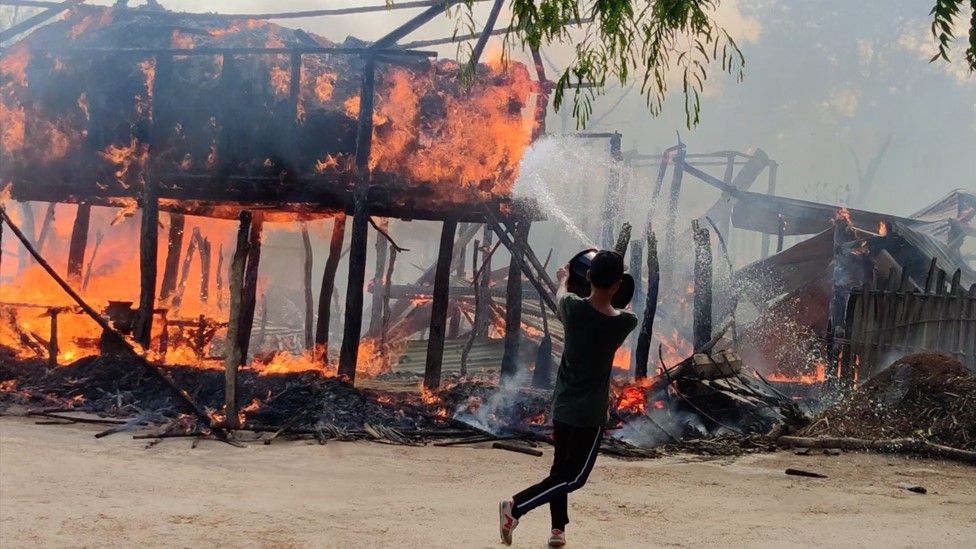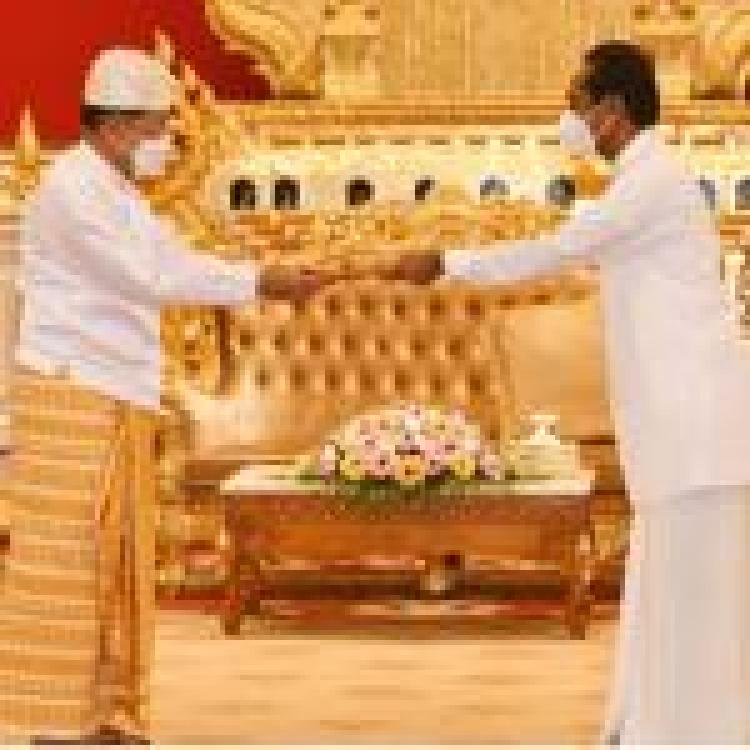
Soldiers in the Myanmar military have admitted to carrying out atrocities involving rape, torture and massacres of civilians, in interviews given to the BBC.
The testimony of 6 soldiers including a corporal, who have recently defected and are under the protection of the People's Defence Force (PDF), gives an insight into the military crackdown on those fighting to restore democracy.
Last year the military seized power from the democratically elected government led by Aung San Su Kyi in a coup, and is set on crushing the armed civilian uprising.
The soldiers admitted to burning houses, executing fleeing civilians and using sexual violence against the civilian population in order to reduce their support for the PDF.
All of the six soldiers who spoke to the BBC admitted to burning houses and villages across central Myanmar.
Myanmar Witness - a group of open source researchers tracking human rights abuses - has verified more than 200 reports of villages being burnt in this way over the past 10 months.
They say the scale of these arson attacks is rapidly increasing, with at least 40 attacks in January and February, followed by at least 66 in March and April.
It comes as some say the military struggles to maintain its multi-front civil war.
This is not the first time Myanmar's military has used a scorched earth policy. It was widely reported against the Rohingya people in 2017 in Rakhine state, whilst Aung San Su Kyi was state counsellor for Myanmar.
One soldier speaking to the BBC recalled an incident when he had been ordered to burn down a house,
He saw a teenage girl trapped behind iron bars in a house they were about to burn down.
"I can't forget her shouting, I can still hear it in my ears and remember it in my heart," he says.
When he told his captain, he replied, "I told you to kill everyone we see". So Thiha* shot a flare into the room.
"It was heartbreaking to hear. We heard her voice repeatedly for about 15 minutes while the house was on fire," he recalls.
Earlier this year, the United States declared that the Myanmar military had committed genocide against the Rohingya people.
Sri Lanka has continued to strengthen its relationship with the military junta in Myanmar with the Sri Lankan ambassador presenting credentials to Myanmar's ruling military last month, even as countries around the world continue to condemn the regime for its human rights abuses. Sri Lanka joins the likes of India and Saudi Arabia, who have strengthened ties with the Myanmar regime, in opposition to many embassies that have downgraded diplomatic ties.
Read more at the BBC



